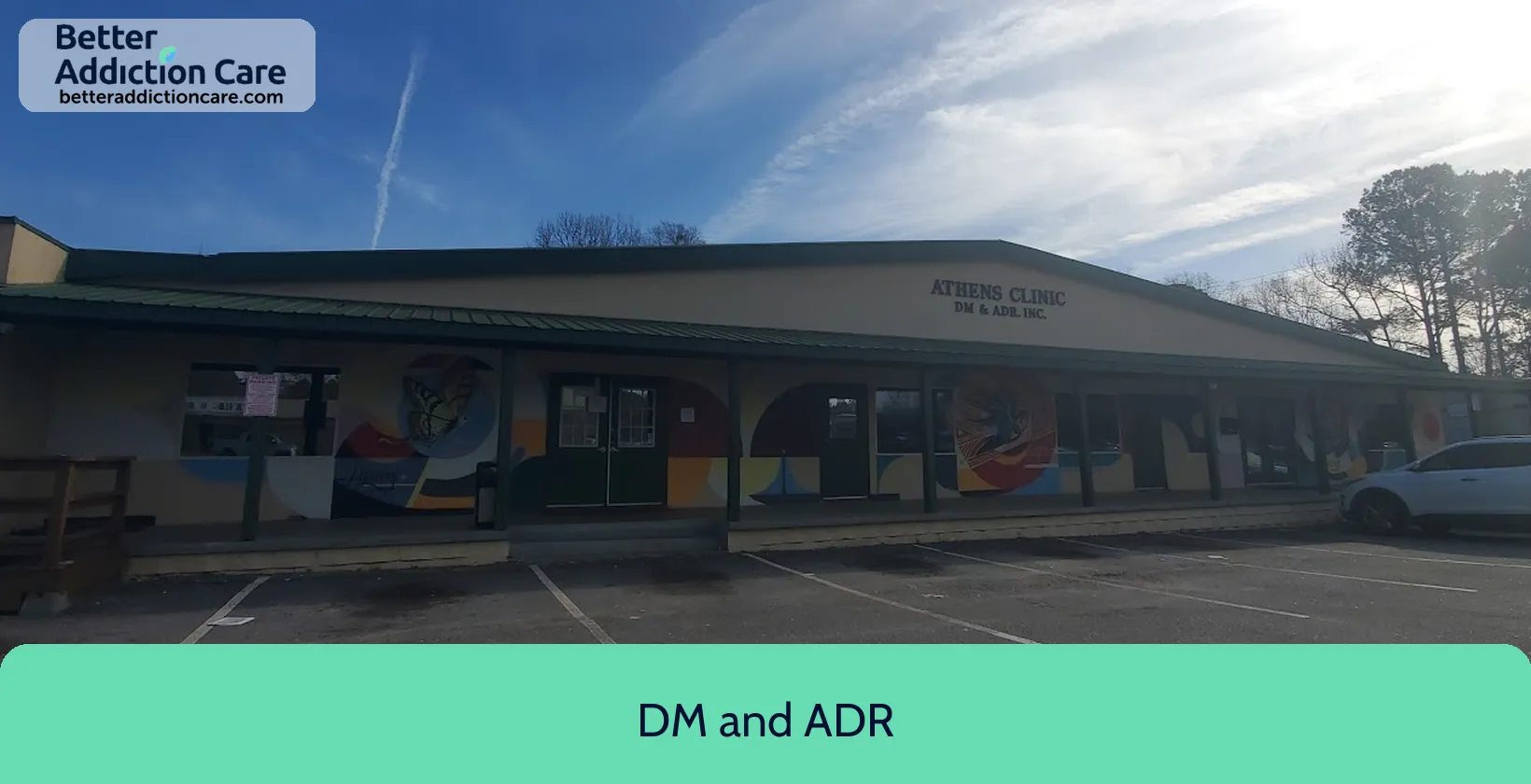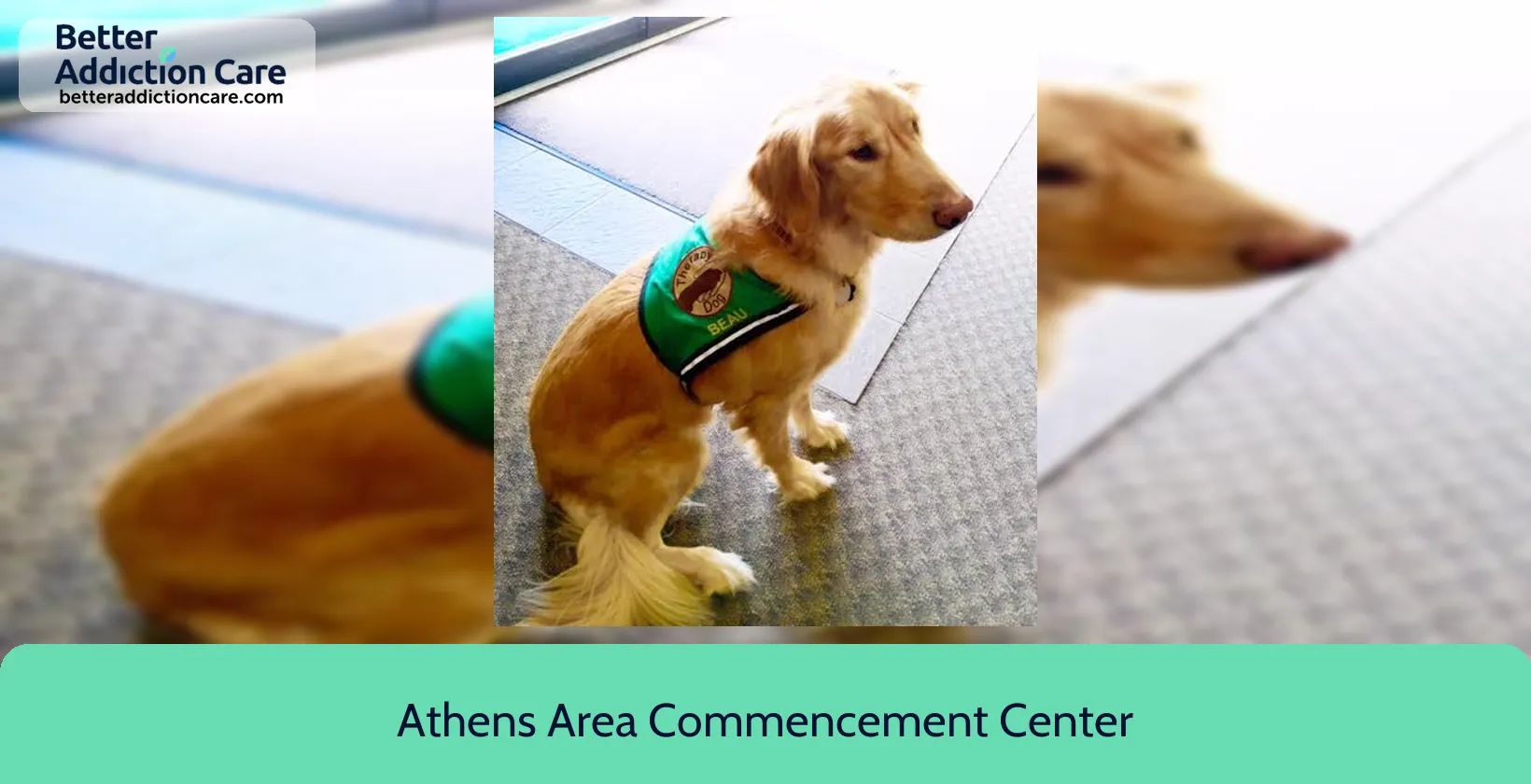Advantage Behavioral Health - Administrative Offices

Overview
Advantage Behavioral Health - Administrative Offices is an accredited substance abuse treatment center that provides inpatient and outpatient detoxification, for men from 18+ years of age. As part of their special programs, Advantage Behavioral Health - Administrative Offices treats clients with co-occurring mental and substance use disorders, veterans, and criminal justice (other than dui/dwi)/forensic clients. To help patients achieve sobriety, Advantage Behavioral Health - Administrative Offices provides treats alcohol detoxification, benzodiazepines detoxification, and cocaine detoxification.. Afterward, patients receive individual psychotherapy, couples/family therapy, and cognitive behavioral therapy during treatment. Advantage Behavioral Health - Administrative Offices is located in Athens, Georgia, providing treatment for people in Clarke County, accepting cash or self-payment, medicaid, and medicare.
Advantage Behavioral Health - Administrative Offices at a Glance
Payment Options
- Cash or self-payment
- Medicaid
- Medicare
- State-financed health insurance plan other than Medicaid
- Private health insurance
Assessments
- Screening for tobacco use
- Comprehensive mental health assessment
- Comprehensive substance use assessment
- Outreach to persons in the community
- Screening for mental disorders
Age Groups
- Young adults
- Children/adolescents
- Adults
- Seniors
Ancillary Services
- Assertive community treatment
- Case management service
- Chronic disease/illness management
- Court-ordered outpatient treatment
- Diet and exercise counseling
Highlights About Advantage Behavioral Health - Administrative Offices
7.58/10
With an overall rating of 7.58/10, this facility has the following balanced range of services. Treatment Options: 8.18/10, Drug Rehab and Detox: 8.15/10, Alcohol Rehabilitation: 8.00/10, Insurance and Payments: 6.00/10.-
Treatment Options 8.18
-
Drug Rehab and Detox 8.15
-
Alcohol Rehabilitation 8.00
-
Insurance and Payments 6.00
Accreditations
State mental health department:
State mental health department accreditation refers to the process of evaluating and certifying the quality and standards of a state's mental health department, ensuring that it provides high-quality services and meets specific criteria for mental health care. The accreditation process is performed by a third-party organization and helps to improve the overall care and treatment of individuals with mental health conditions.
Commission on Accreditation of Rehabilitation Facilities (CARF):

CARF accreditation is a globally recognized certification for rehabilitation and human service organizations. It signifies that an organization meets high-quality standards and is committed to providing top-level care. Achieving CARF accreditation involves a rigorous evaluation process, including on-site surveys. This accreditation enhances an organization's reputation, instills trust in clients and funders, and encourages ongoing excellence in the field.
Treatment At Advantage Behavioral Health - Administrative Offices
Treatment Conditions
- Mental health treatment
- Substance use treatment
- Co-occurring Disorders
Care Levels
- Hospital inpatient treatment
- Partial Hospitalization Program
- Outpatient
- Short-term residential
- Residential detoxification
Treatment Modalities
- Individual psychotherapy
- Couples/family therapy
- Cognitive behavioral therapy
- Dialectical behavior therapy
- Integrated Mental and Substance Use Disorder treatment
Ancillary Services
Languages
- Sign language services for the deaf and hard of hearing
Additional Services
- Pharmacotherapies administered during treatment
- Mentoring/peer support
- Breathalyzer or blood alcohol testing
Special Programs
- Clients with co-occurring mental and substance use disorders
- Veterans
- Criminal justice (other than DUI/DWI)/Forensic clients
- Clients who have experienced trauma
- Persons 18 and older with serious mental illness (SMI)
Get Help Now
Common Questions About Advantage Behavioral Health - Administrative Offices
Contact Information
Other Facilities in Athens

7.23

7.28

6.68

7.23

6.71

7.48

6.90
DISCLAIMER: The facility name, logo and brand are the property and registered trademarks of Twin Lakes Recovery Center, and are being used for identification and informational purposes only. Use of these names, logos and brands shall not imply endorsement. BetterAddictionCare.com is not affiliated with or sponsored by Twin Lakes Recovery Center.
